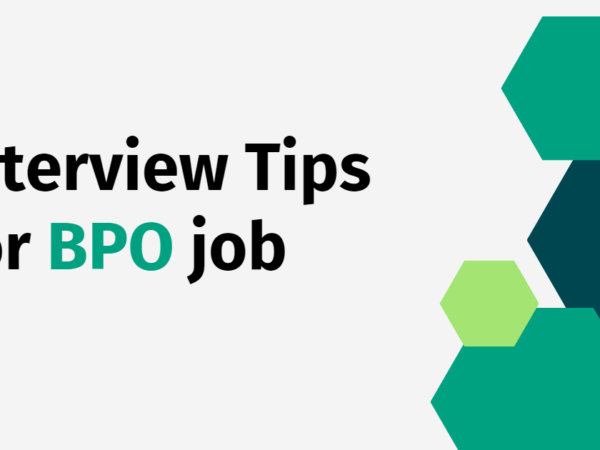How to Maintaining Work Life Balance in High-Pressure Corporate Environments

Achieving and maintaining a healthy work-life balance might seem like an impossible goal in the fast-paced, high-pressure world of corporate organisations. Long working hours, higher stress levels, and a disregard for personal well-being are frequently results of the demands of a competitive professional environment. However, even in the middle of demanding corporate environments, it is possible to maintain equilibrium and a healthy sense of balance in your life. This blog will discuss realistic tactics and mentality changes that can support people in leading meaningful personal lives and achieving professional success.
Set Clear Priorities:
Setting clear priorities is crucial for preserving a healthy work-life balance in demanding business settings. Consider your personal and professional ideals and decide what is most important to you. Set objectives that are relevant, attainable, and in line with your priorities with this clarity. You can spend your time and energy appropriately, prevent burnout, and keep a sense of balance by concentrating on what is genuinely important.
Expert’s Advise:
“Reflect on your personal values and professional goals. When I found myself overwhelmed with work commitments, I realized that my health and family were taking a backseat. I made a conscious decision to prioritize my well-being and quality time with loved ones. By setting clear priorities, I achieved a better work-life balance and felt more fulfilled both personally and professionally.”
Learn to Delegate:
High achievers frequently have trouble delegating because they worry that the work won’t be done to their standards or that it shows a lack of skill. However, excellent delegation skills are essential for minimising overwhelm and maintaining life balance. Determine which tasks can be delegated to others, including coworkers, subordinates, or outsourcing possibilities. In addition to reducing your workload, delegation promotes teamwork and gives others the opportunity to develop.
Also Read: Achieving Mental Health and Well-being: Strategies for a Balanced and Healthy Life
Expert’s Advise:
“As a perfectionist, I used to hesitate to delegate tasks, fearing that they wouldn’t meet my standards. However, I learned that trust and effective communication are key. By identifying capable team members and clearly communicating my expectations, I delegated certain responsibilities. This not only lightened my workload but also empowered my team, allowing me to focus on strategic tasks while maintaining a healthier balance.”
Set Boundaries:
In order to maintain a healthy work-life balance, limits must be established. Establish your working hours in detail and swear to respect personal time outside of those hours. Set reasonable expectations by letting your coworkers and supervisors know about these limitations. Avoid the urge to always be “on” and develop the ability to decline requests for work or obligations that can interfere with your personal time. By establishing limits, you provide room for private pursuits, rest, and renewal.
Expert’s Advise:
“I used to be available 24/7, responding to work emails even during my personal time. It took a toll on my well-being and relationships. Realizing the importance of setting boundaries, I started establishing dedicated ‘off’ hours. I communicated these boundaries to my colleagues and made it a habit to disconnect from work during those times. It allowed me to recharge, pursue personal interests, and be present for my loved ones.”
Practice Effective Time Management:
In high-stress corporate contexts, effective time management is a crucial ability for maintaining life balance. Set priorities for your work by concentrating on high-value activities that support your objectives. Use methods like time blocking or the Pomodoro Technique to divide your job into manageable portions. Time slots for personal pursuits, self-care, and spending meaningful time with loved ones should be set aside. You can attain productivity while maintaining your personal well-being by using your time wisely.
Expert’s Advise:
“To manage my time effectively, I adopted the time-blocking technique. I categorized my tasks into focused time blocks, allocating specific periods for different activities. By dedicating time for work, self-care, and leisure, I found a balance that allowed me to be productive and enjoy personal activities. It helped me regain control over my schedule and reduced stress significantly.”
Nurture Self-Care Practices:
Maintaining a healthy sense of balance in high-stress work contexts requires self-care. Set aside time for things that enhance your physical and mental well-being, such meditation, exercise, getting enough sleep, and healthy food. Make time for the interests, activities, and hobbies that make you happy and relax. Keep in mind that taking care of yourself is essential for sustaining long-term productivity and fulfilment.
Expert’s Advise:
“Prioritizing self-care became a game-changer for me. I committed to regular exercise, even if it meant waking up earlier or using lunch breaks for a workout. Additionally, I incorporated mindfulness techniques like meditation and deep breathing into my daily routine. These practices helped me recharge, manage stress, and maintain a clearer focus on both work and personal life.”
Cultivate Supportive Relationships:
When working in stressful corporate situations, it’s essential to surround yourself with supporting people. Develop enduring relationships with friends, family, and coworkers that recognise and value your dedication to a balanced lifestyle. Make time for social encounters that renew you and seek social help when you need it. Creating a network of allies can offer inspiration, insight, and a sense of community.
Expert’s Advise:
“Building a support system was instrumental in maintaining life balance. I actively sought connections with like-minded colleagues who understood the importance of work-life equilibrium. We created a supportive network where we shared experiences, offered encouragement, and held each other accountable. Having this support system helped me navigate challenges and find a sense of belonging within the corporate environment.”
Embrace Mindfulness and Stress Management:
You can handle high-stress corporate environments more easily by practising mindfulness and stress management strategies. Include mindfulness techniques like meditation, deep breathing exercises, and mindfulness walks in your everyday routine. Adopt techniques for managing stress, such as routine exercise, writing, or relaxing activities. You can more successfully adapt to obstacles and preserve equilibrium by developing self-awareness and controlling stress.
Expert’s Advise:
“To manage stress, I started practicing mindfulness during breaks. I would step away from my desk, take a short walk, and focus on my breath or surroundings. This simple practice helped me regain mental clarity and reduce stress levels. Additionally, I incorporated stress management techniques like journaling and engaging in hobbies that provided a sense of relaxation and rejuvenation.”







